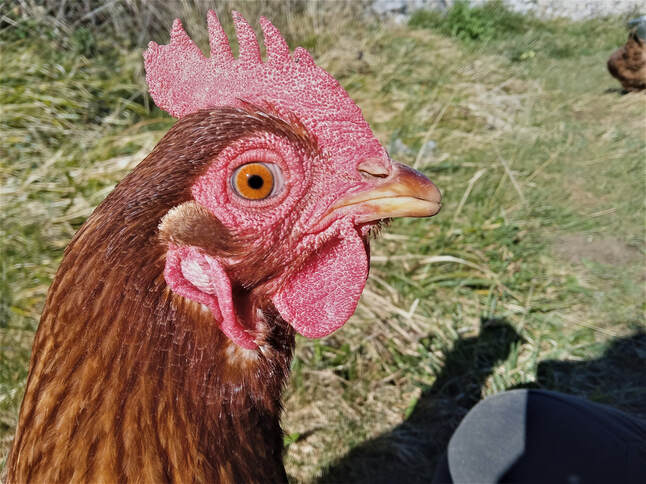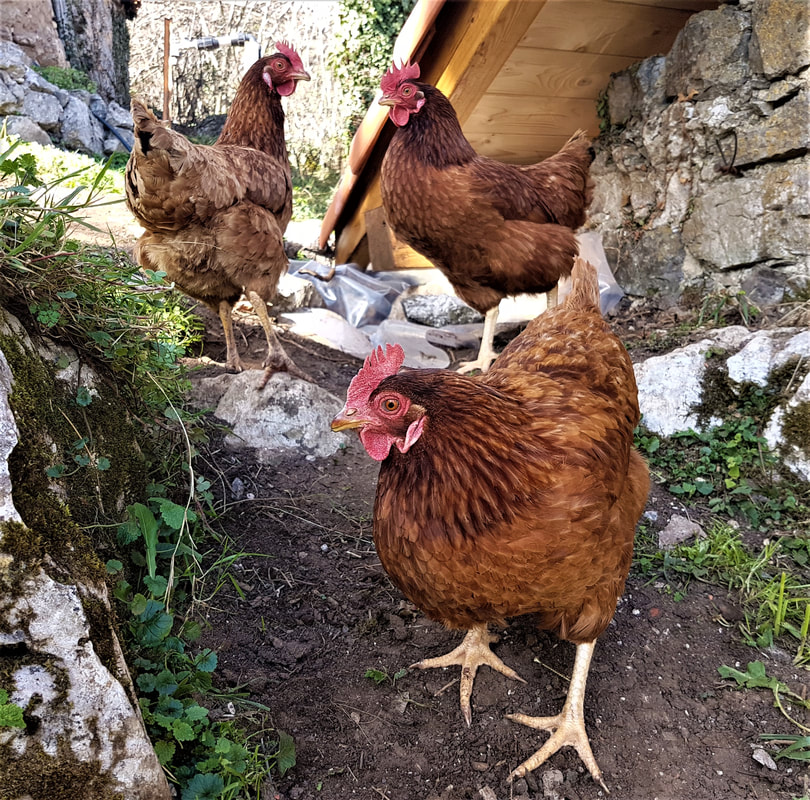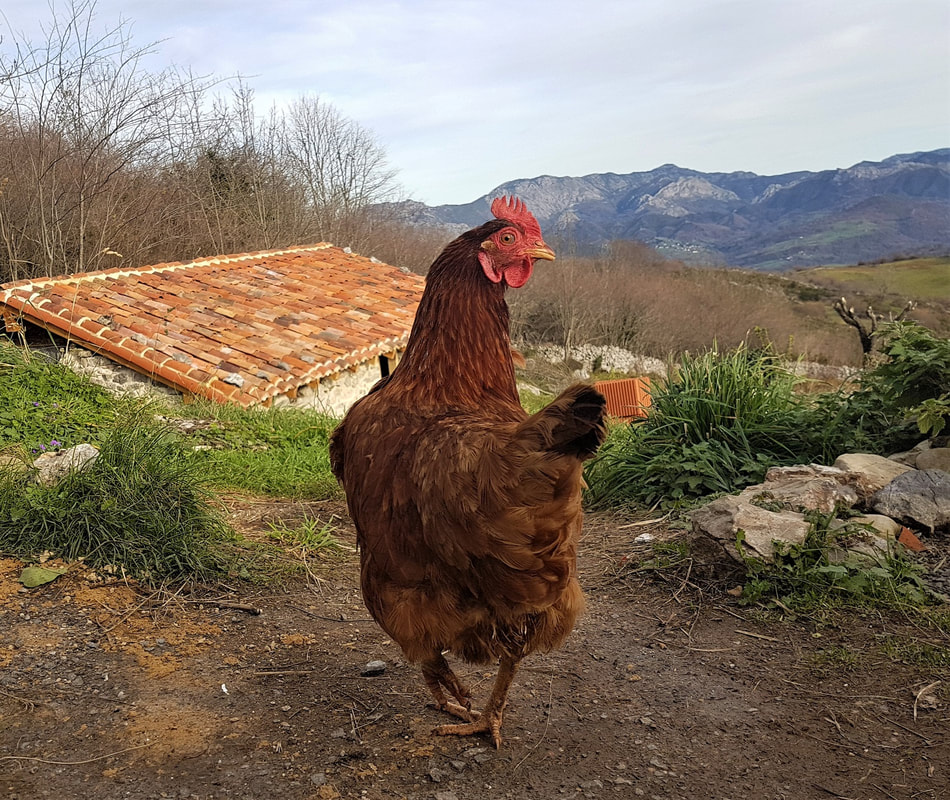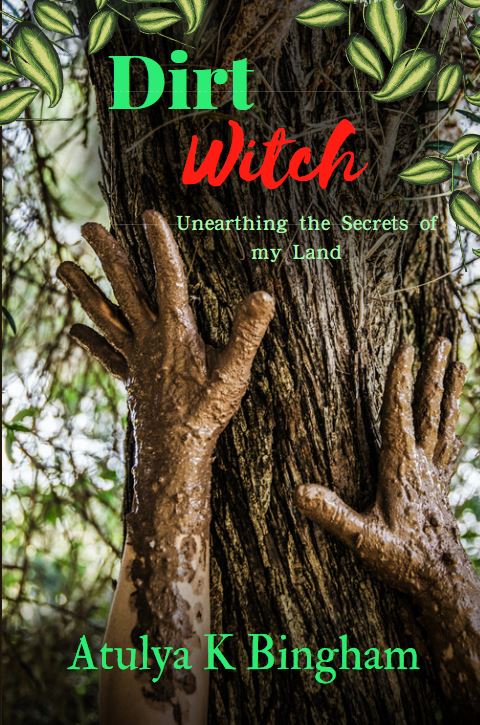|
The last thing Hilde ate was raspberry jam. Hilde hen, the cuddly funny one, sitting on my kitchen step, looking at me. Into me. That mysterious cord between us strengthening through the doors of the eyes. Because that’s how the light of us shines through, the intelligence, the truth. I saw glimmers of that truth in you Hilde. I felt your warmth my friend. Indeed I loved you. Laugh if you want, but love is love. This isn’t vapid sentimentality. It’s the very flow of our souls. Love doesn’t slot neatly into socially acceptable categories. It’s neither quantifiable nor comparable. It just is. And it moves unstoppably like a river, always downward toward the open sea. Impossible to dam up, it often bursts its banks, because both love and water have their own rules, their own currents. We either set our boats upon them and sail, or we watch from the cold, dry shore. My boat sailed with Hilde even though she was a hen. In some ways she wasn’t a bird at all, just as I’m not simply a mammal. There are animals that belong clearly in the animal, preferring their own kind and their own parameters. And then there are the edge-walkers like Hilde and myself. We skip up to the boundary and peer over. What’s over here? Who are you? Are we the same in some way? What we find is both amazing and shocking. In many many ways we are so very similar. And in many other ways we are completely incomprehensible. Nevertheless, there is one thing that bonds every living being on this planet. There is one experience we all share. Death. I’ve watched a dog die. A tree. A human. And now a hen. Death, like love, doesn’t discriminate. There is no laughable pyramid of supremacy for the reaper, no life too small or big to be taken. On the day of death, everyone and everything is equal. An ant, the Dalai Lama, and a hen. Nothing wants to die. This I’ve seen. And all animals know instinctively what death is, and just like with us a great fear of it runs through their veins, understandably, because let’s face it, the day we die is never our best day. I had three hens. They were a troop of redheads that appeared at the mouth of a lockdown. Gertie the pecker died young but fast. One day she was fine, the next she was stretched out stiff-legged in the coop. Frida the adventurer wandered into the forest never to return. Then there was Hilde. Oh Hilde. The beloved one. The funniest, friendliest, sweetest hen who chit-chatted to anyone who’d listen. Her death was slow, and it broke me. Sitting with her in my arms amidst the bowing hazels, all I could do was weep at the wretched state of her.
Protracted deaths are a rack that stretches anyone in care’s reach. You have no idea how long the ordeal will last, and no way of pacing yourself. Always hoping for a miraculous recovery, you walk a tightrope of terrible choices, not knowing whether to keep administering medicine or to leave your dear friend in peace. Should you put them out of their apparent misery? Or should you hold their claw? Did you give up too early? Or did you torture them by trying too hard? How can you ever know? The carer is always guilty no matter what they do. The last thing Hilde ate was raspberry jam. Because she loved raspberries, and in happier times was caught regularly pinching mine. It was her last morning, and she nibbled a bit of jam. Then came the terrible deterioration. The inability to move or eat. Counting the minutes, I prayed for the reaper to hurry up. What the fuck was he waiting for? I’d like to say Hilde died peacefully in my arms, but the moment of death is rarely peaceful. This isn’t a romcom after all. As the body gives up, the consciousness (inside it?) can do nothing but wait for some inner calamity to occur. That moment is never pretty. Finally after far too long, there was a terrible struggle. Something inside Hilde snapped. She flapped terrified, eyes widening in horror. As I hovered over her, trying to say something soothing, it seemed she thought I was killing her. So my heart is sore today. My eyes have turned to vinegar, stinging so harshly the world seems forever blurred. There’s nothing but fog and drizzle, the land itself lost in its tears. I don’t understand the injustice, nor the lack of poetry. But nature has her ways. The walnut tree calls me now. As I trudge down the slope towards her, the mist begins to thin. The snapshots of horror in my mind don’t fade, but I begin to find their edges. I begin to see and feel around them and beyond them to wider open spaces. Hilde wasn’t a hen you see. And I’m not a human. We were just trying clothes on for size, and those clothes were always too small. All these stories and memories, none of them the truth. There are great swathes of us that can never be marred by what we think we’ve witnessed and the tales we tell about it; the light in a being’s eyes, the love in a heart, elements of us that are as pure and clean as spring water. And yes those elements just keep flowing. On and on and on. They will never be content with an identity or a body, be it hen or human or tree. Great ribbons of pristine fluidity we are. Always stretching. Always searching. For the open sea. Go dear Hilde, go. Don’t get stuck. Don't hang around. You always were and always will be free.
11 Comments
|
Runes
The word Rune is derived from the root - run or runa meaning whisper or secret. In linguistic terms, runes are the symbolic letters of ancient Germanic alphabets, or even short Norse poems. Runes can be stones inscribed with magical symbols or 'spells too. Welcome to my runes. Are they symbols? Are they poems? Or are they spells? I'll leave it up to you.
AuthorAtulya K Bingham is an author, natural builder and lone off-gridder now lost in the hills of northern Spain. "I consider myself a person who is connected to nature, somebody who respects the earth; this book has me walking through the world with all my senses opened." Emma Blas, editor Her Heart Poetry
Categories
All
Archives
July 2022
|




 RSS Feed
RSS Feed
